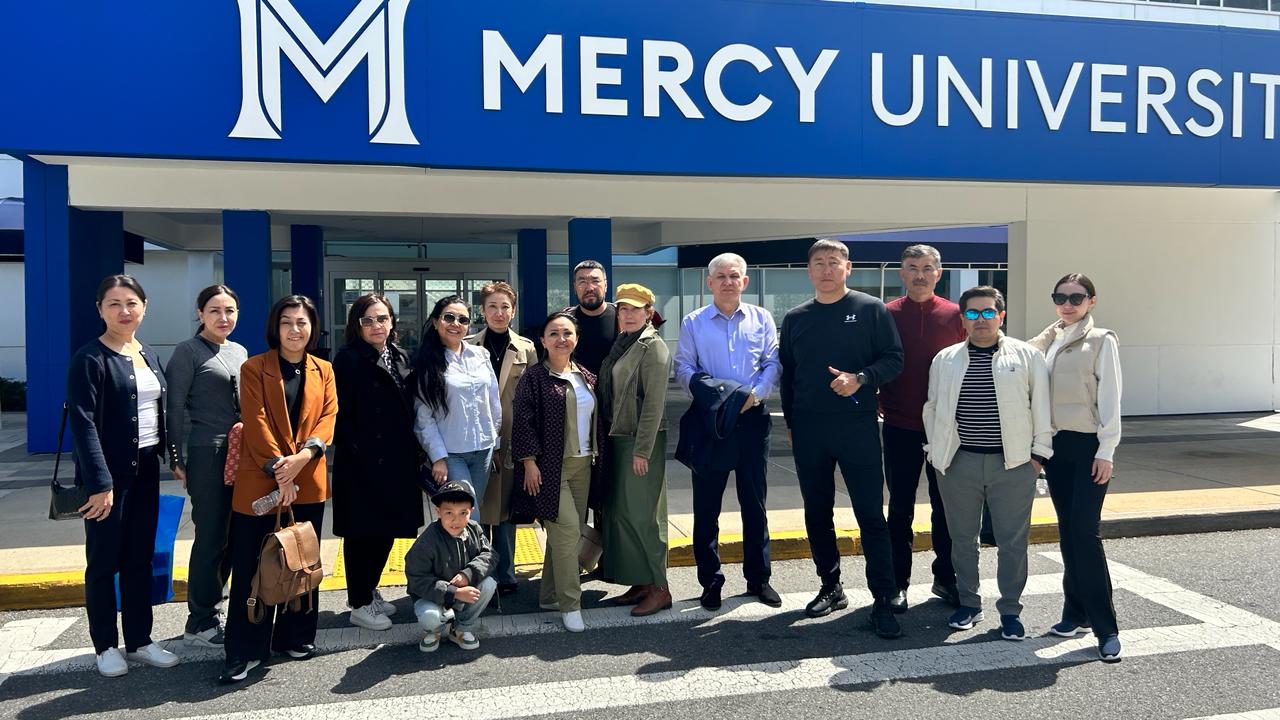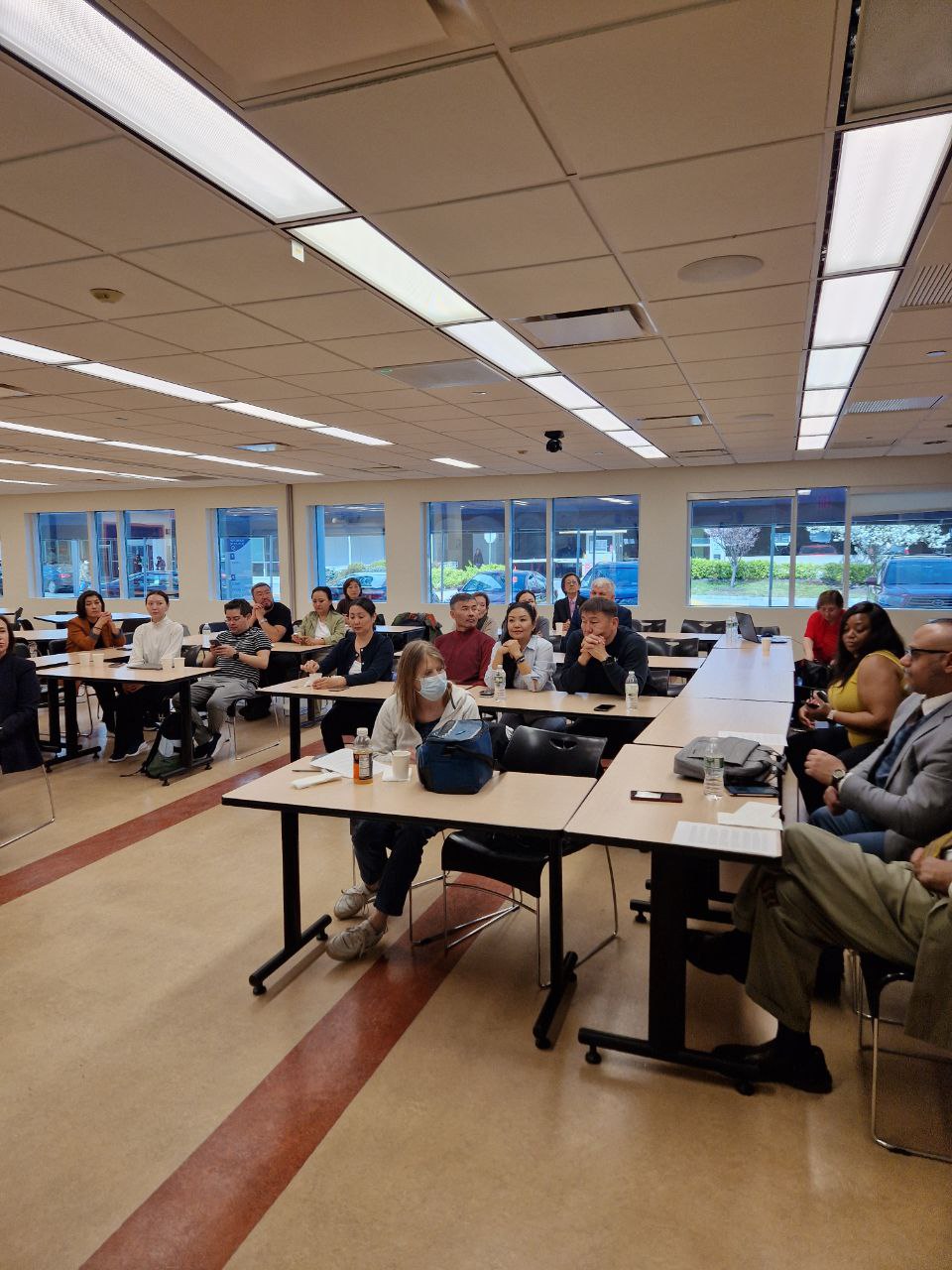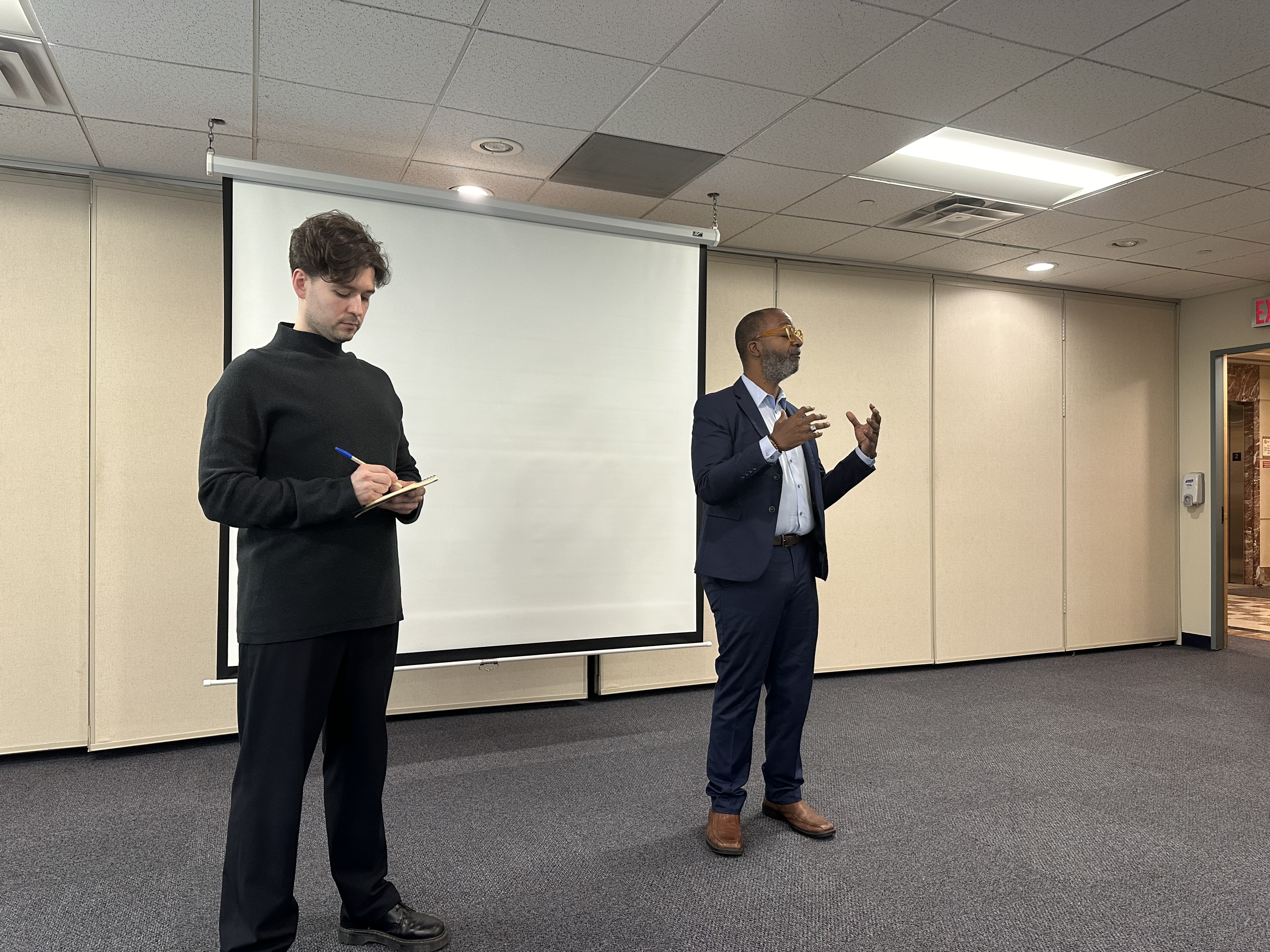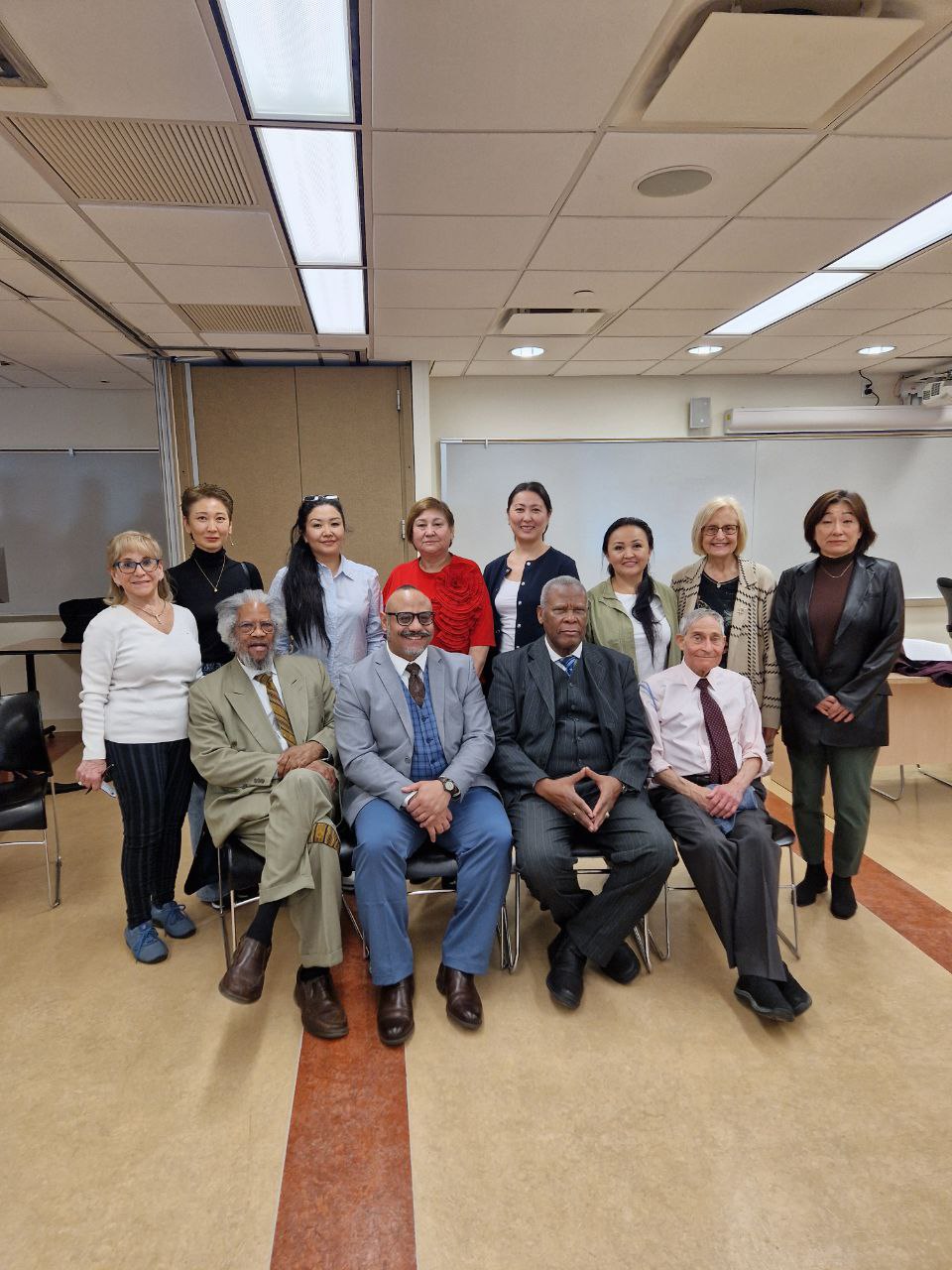From April 6 to 14, 2024, mediators from the International Human Rights Center completed an international internship in the United States (New York City and Washington, D.C.). As part of the internship, the mediators paid a business visit to the IMCR Mediation Center, which is located at Mercy University. Aida Zamanbekova, coordinator and mediator at the International Human Rights Center, shared information about the Center:
"The Center has 600 mediator graduates working in New York City. The mission of the Center is that an individual can change their environment. The Center was founded in 1969 and started as a training center. The program included med-arb, where cases went through either mediation or arbitration. A year later, people started coming for training, and there were no mediation laws at that time.
In 1975, the first mediation center in New York City was opened. Two police precincts began working with the Center's mediators, and all cases were referred to the Center for mediation or arbitration. This approach yielded results, and subsequently, the criminal court began funding mediator training and mediation procedures. Twenty dollars was paid per case, with each resolution taking an average of 25 minutes. The courts did not want to handle these cases. In 1981, a law was passed recommending mediation by the state. New York State now has 62 counties, each with its own mediation center. The state funds the mediation program. The founder of the Mediation Center is Theodore Hill, a recognized mediator in America, an arbitrator, and an influential public advocate. The Center has a structure for supervision. The state pays mediators based on the number of procedures they conduct.
The basic mediation course is 40 hours, and an internship of up to 5 months is mandatory. Mediators undergo training, are entered into a unified database of mediators, and receive a registration number.
The USA has many different cultures, nationalities, and numerous differences, leading to many conflicts. The Center works with courts on family conflicts and small disputes. Graduates must conduct at least six training mediations.
Of the total number of cases in courts, 80 percent go through mediators, and of those 80 percent, 87 percent end in agreement."
As part of this international internship, mediators from the International Human Rights Center also visited several other mediation centers and the National Center for Criminal Defense Attorneys.







